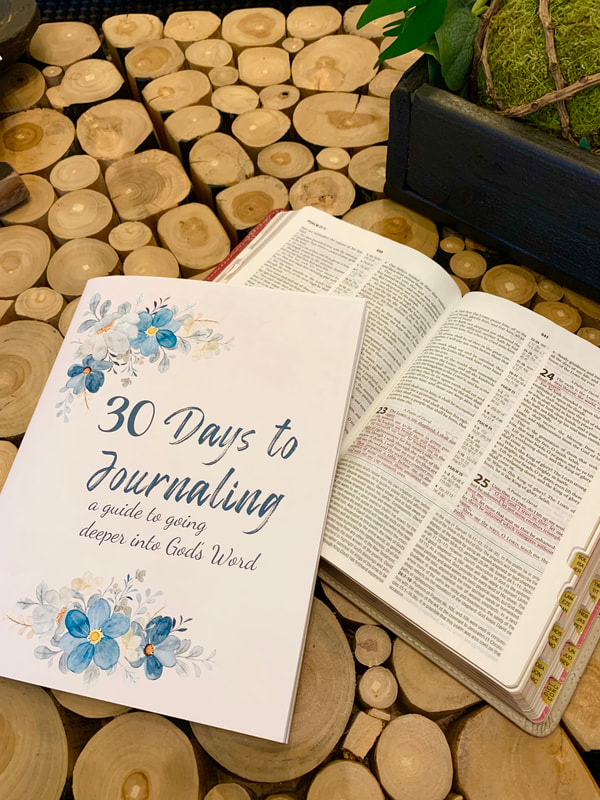|
The story of Jonah As December was coming to a close I decided to read the book of Jonah for my quiet time and I was amazed at all the new things I saw and challenged by this simple study. I wanted to share a few of them with you.
Who determines whose worthy of God's grace? While Jonah is considered one of the minor prophet books in the Bible, it is very unique in two ways. There are no prophecies concerning the people of Israel and it will end with a question. The story of Jonah is familiar to most since being swallowed by a large fish tends to be memorable. The introduction to Jonah was simple as we read in the first verse of the book. Now the word of the Lord came unto Jonah the son of Amittai We know he was a prophet as Jesus referred to him in Matthew 12:39 But he answered and said unto them, An evil and adulterous generation seeketh after a sign; and there shall no sign be given to it, but the sign of the prophet Jonas: But Jonah’s assignment was not to speak to his own people but to deliver a message to the people of Nineveh whose wickedness had come before the Lord. The term “Come before” that is used in verse 2 of chapter 1 means a person’s appearance before God. The word "wickedness" depicts evil in an absolute, negative sense. It means bad in a moral and ethical sense. To put it bluntly, Nineveh was consumed by evil, it poured out of every area in their life, their appearance before a holy God was completely marred by evil, like layers of filthy rags. There was no way they could hide it but as much as our God is holy, He is also One of great compassion. While their sin abounded, God’s grace abounded more. While we would have said they were beyond redemption, God commissioned someone to go and give them a warning. What a great reminder of just how merciful our God is and just how far He will go to give a second chance. In contrast to this powerful and beautiful illustration of God’s grace and mercy is Jonah’s response. For the first time I was really struck by what Jonah’s actions revealed about his heart. When he fled the presence of God by hopping on a boat headed in the opposite direction, he was not only in direct disobedience to God’s command, it showed he did not have the same compassion, in fact he was completely void of any desire to extend them mercy. This was an interesting thought. It was as if Jonah felt he had the right to determine who received God’s grace or who should be told about God’s grace. He had no desire to be involved in this mission of mercy. God calls us to spread His good news throughout the earth, to every living soul but here Jonah decides he wants nothing to do with that. This really made me stop and consider if I have ever been guilty of this, of evaluating someone’s appearance or background to determine if I wanted to share the gospel or not. We don't have that right, it is not up to us. Sometimes it is those whose appearance takes us back that need the gospel more than anyone else. This is the first lesson from the book of Jonah. God’s grace is for everyone, it is not up to me to determine who is worthy of hearing about it, but to share it to all God leads into my path. Compassion from an unexpected source The next lesson comes from Jonah’s journey on the boat headed for Tarshish. He, like many of us, was mistaken when he assumed he could outrun God. The Lord sent a storm so strong that it frightened even these seasoned sailors. As their fear takes hold, they turn to their gods and do whatever they can think of to save themselves. Finally they decide it was time for Jonah to join them and pray to his God, unaware that He was the One true God. It is sad that Jonah immediately recognized the reason for the storm, his direct disobedience to God’s command, yet was unwilling to repent or even confess it to these men until forced by the casting of lots. He simply stood by and said nothing until there was no other option, you could say he was cornered into a confession. This is a reminder for us that our acts of disobedience often cause the people around us to suffer as well, rarely do we cause harm to just ourselves. hen the truth did come out it is amazing to witness the compassion offered by these pagan sailors. Their lives were in danger, they had tossed much of their cargo, their income, overboard in an attempt to lighten their load, but when told that this whole episode of terror was Jonah’s fault, the man who was fast asleep while they were all running around like madmen, they were still willing to offer compassion. Jonah had told them the only way to make the storm cease was to toss him into the sea yet they tried to find another way. How many of us would have responded in the same way? Very few, most would have had something to say about his selfish behavior. It is almost ironic that these sailors possessed more compassion than Jonah. They had been put in danger of losing their lives but were willing to risk theirs to save Jonah while he was unwilling to deliver God’s message to the people of Nineveh. How amazing that Jonah was given grace by these men, something he was withholding from others. What a great example these sailors are for us today. We should be that kind of person, one who can extend grace to others even when they make mistakes or wrongs against us. We should also be willing to admit when we are wrong, come forward, ask forgiveness and take responsibility for our actions especially in front of the lost. We should not have to be cornered into a confession like Jonah. This leads to a little sub point within this lesson. Jonah's testimony before these lost men was damaged to say the least. He who was a prophet of God, a messenger of God's very words, was doing a poor job at reflecting them to others. His disregard to God’s command was not a good testimony and should make us consider how ours stands before others. How often have we chosen to disobey or completely disregard God's direct commands? How has this hurt my testimony and impacted by ability to witness to the lost? We must always remember that we don’t live life for ourselves, we are being watched even when we don’t realize it. Every action, word, or response can have an impact on others for good or bad. These sailors would see the power of God when they finally did throw Jonah into the sea. We read it in verse 16 of chapter one. Then the men feared the Lord exceedingly, and offered a sacrifice unto the Lord, and made vows. Although we don’t know for sure if this means they became believers in God, they had witnessed that He was God. Tragically it is not Jonah’s actions that were the reason they did, only the fact that the storm ceased after they tossed him over did they fear the Lord. We should seek to maintain a good testimony in front of everyone, you never know what a difference it will make in someone's life for eternity. Guilty as charged The people of Nineveh is where I found my next little nugget. In Jonah 3 verses 4-5 we read And Jonah began to enter into the city a day's journey, and he cried, and said, Yet forty days, and Nineveh shall be overthrown. So the people of Nineveh believed God, and proclaimed a fast, and put on sackcloth, from the greatest of them even to the least of them. The people of Nineveh believed God, the word "believe" means receiving something as true and sure. That definition grabbed my attention because of their background. They were pagan people consumed by wickedness yet when they heard God’s message they didn’t question it but received it as true and sure. Can we, as children of God, say this is our response when we hear the words of God spoken from the pulpit or read it for ourselves? How often have we been a hearer of the Word but not a doer? God’s word is truth, every word can be believed and our life should be a reflection of our belief. Conviction goes to another level when we examine verses, 6 through 9. For word came unto the king of Nineveh, and he arose from his throne, and he laid his robe from him, and covered him with sackcloth, and sat in ashes. And he caused it to be proclaimed and published through Nineveh by the decree of the king and his nobles, saying, Let neither man nor beast, herd nor flock, taste any thing: let them not feed, nor drink water: But let man and beast be covered with sackcloth, and cry mightily unto God: yea, let them turn every one from his evil way, and from the violence that is in their hands. Who can tell if God will turn and repent, and turn away from his fierce anger, that we perish not? When they were confronted about their behavior they did not make an excuse or get mad. They didn't seek to find a loop hole. They took it for what it was, the truth and then altered their behavior in the hope that God might spare them. What's interesting is the fact that they did not have any assurance God would change His mind. They did not have such verses like the one found in 2 Chronicles 7:14 If my people, which are called by my name, shall humble themselves, and pray, and seek my face, and turn from their wicked ways; then will I hear from heaven, and will forgive their sin, and will heal their land. Or the one found in Psalm 51:17 The sacrifices of God are a broken spirit: a broken and a contrite heart, O God, thou wilt not despise. The king of Nineveh simply acted on the hope that by turning from their evil way and from the violence in their hands, God might spare them. They did what they could and God saw them. And God saw their works, that they turned from their evil way; and God repented of the evil, that he had said that he would do unto them; and he did it not. Jonah 3:10 Where does that leave us? What do we do when God confronts us about our bad behavior or willful disobedience? Do we try to make an excuse by saying others are doing it or it is not as bad as others. Do we get upset when someone challenges us with the truth of our actions? Our response should be as the people of Nineveh, to turn away from our sin, forsake it and beg God’s forgiveness. Instead of being angry with someone when they tell us the truth about our sinful conduct we should be grateful to them that they had the courage and even compassion to call us out because it means we have the opportunity to repent, to alter our ways and be cleansed. Remember it is not a bad thing when we are chastised. For whom the Lord loveth he chasteneth, Hebrews 12:6 Because God loves us and cares about us He corrects and confronts our behavior. We simply have to accept when we are wrong as the people of Nineveh did; when we do confess our sins, we will receive grace and forgiveness from our God. Mercy in the Face of Rebellion But it displeased Jonah exceedingly, and he was very angry. And he prayed unto the Lord, and said, I pray thee, O Lord, was not this my saying, when I was yet in my country? Therefore I fled before unto Tarshish: for I knew that thou art a gracious God, and merciful, slow to anger, and of great kindness, and repentest thee of the evil. Jonah 4:1-4 Here is the final lesson from Jonah who is upset that God spared the people of Nineveh. He wanted to see them destroyed even after he, although grudgingly, delivered God’s message. The reason is now revealed and we find out why he was so reluctant to go in the first place. He knew that God was gracious, merciful, slow to anger, and of great kindness. That is the epitome of selfishness. Not only did Jonah want to deny the people of Nineveh God’s grace but he did it because he hated the fact that they might repent and be spared! He who was God’s messenger, who should have been a reflection of God’s character wanted these people to perish without hope or forgiveness. The real shocker came from the definition for the word gracious: Mercy in the face of rebellion. Mercy in the face of rebellion. I read that definition over and over again, in fact it stayed with me for days as I tried to process the meaning of the words. If you are looking for a sentence to sum up the entire book of Jonah this is it. Mercy in the face of rebellion. Jonah rebelled against God, he deliberately disobeyed God yet even in this rebellious state God was merciful. He saved him from drowning by creating a big fish and after three days told the creature to spit Jonah back up onto dry ground, not the sea but safely on shore. The people of Nineveh had rebelled against God in their severe wicked behavior yet God granted them mercy by sending someone to warn them of the coming destruction. We are also on the list. We were in a rebellious state when lost but God was merciful to us, even loved us. But God commendeth his love toward us, in that, while we were yet sinners, Christ died for us. Romans 5:8 While we were yet sinners, rebels against God, we were loved and offered mercy. What is interesting about this term is the fact that it is solely used as a descriptive term of God. This is something that He alone can do, or gives us strength to be merciful to those who are rebellious. Apart from Him it is impossible. Mercy in the face of rebellion. What an amazing God we serve who extends mercy in the face of our rebellion but may I suggest that we never take this for granted or use it as a reason to behave as Jonah. He knew God was gracious and behaved ungraciously by being angry at the sparing of Nineveh and angry when God took away his gourd that provided shade while he was sitting in the sun. This was the behavior of a spoiled brat not a child of God. We should always be grateful that God is a God who extends mercy even when we are in a rebellious state but seek to have the right attitude, one whose perspective of God is correct. We are His creation not the other way around and He is due all the respect and honor we can give. These are just a few things I found while studying the book of Jonah, may I encourage you to take some time to read it for yourself? It is only four short chapters but there are many truths to be found in this book tucked between Obadiah and Micah. Let’s purpose in our hearts to be a people that are willing to be messengers of grace to the world, to offer compassion to those in need, ready to repent of our sins when confronted by God or others, and always remember just how good God has been to us even when we behave rebelliously. Comments are closed.
|
New Product now available!
Categories
All
Sarah GraceI am just an ordinary girl who is loved by an extraordinary God and I seek to love others the same way. I love to bake, read, do puzzles, watch Hallmark movies, and go shopping with my mom! This blog was created as a place where I could share some thoughts that the Lord has shown me and to be an encouragement to others who desire to know Him in a deeper way. My prayer is to learn to sit still and trust God with my future. Archives
December 2023
|


